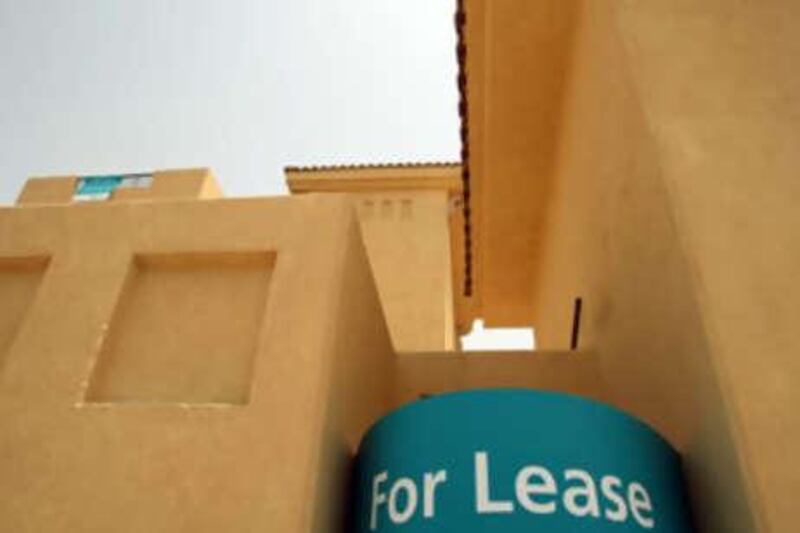SHARJAH // The Abu Dhabi Judicial Department prosecuted 184 individuals and companies in the first half of the year who were caught taking advantage of the capital's housing shortage by illegally modifying villas and homes to house more tenants. The municipality released the figures yesterday, while Sharjah officials said they had also moved to enforce housing rules and had closed down 13 private schools housed in villas in the emirate.
In the capital, the power supply had been cut to the illegally modified units in 31 of the cases until the municipality could restore them to their original state, the department said. In 21 of the cases, the buildings had been fixed and it was expected that the remainder would be restored within two weeks. The department said the cost of restoring the properties would be borne by the violators, who had been given between two weeks and a month to have the work carried out. Residents have been given similar deadlines before they are evicted.
Those convicted of violating rental laws face a year in prison and a fine of up to Dh50,000 (US$14,600). The department would not say how many properties were involved, nor where they were located. Breaches of the rental law had dramatically increased, it said, and some residential areas were at risk of becoming "slums". Owners were taking advantage of the housing shortage to earn more money to the detriment of infrastructure, safety, stability, aesthetics and the serenity which normally characterised residential areas, the department said.
It was committed to combating the practice of transforming villas into accommodation for single men, it said. This practice, said Sultan Saeed al Badi, under-secretary at the Abu Dhabi Judicial Department, was likely to lead to an increase in crime. Mr Badi said the hefty penalties were justified. "Preliminary results of the sentences issued against violators of the rent law in Abu Dhabi showed they are beneficial in reducing cases of infringements," he said.
"They are also very successful as a means to remove irregularities through the co-operation with the concerned parties." The housing shortage in the capital has led to an increased number of complaints to the Abu Dhabi Rent Committee, including charges of illegal subletting of flats, unlawful evictions and extreme rent increases. Mohammed Rashed al Hameli, the chairman of the Rent Disputes Settlement Committee, said staff investigated at least 50 complaints every day. Two years ago, it was dealing with the same number in a week.
Mr Hameli said complaints about people converting villas and homes into separate units was a problem in the capital. "We get a lot of problems from this," he said. "If it's a villa that can hold only 20 people, of course you won't get permission to sublet it to 40 people." Mr Hameli said the majority of complaints had to do with tenants subletting units without consent from the authorities. Last Tuesday, a municipal court sentenced two people to two months in jail and fined them Dh50,000 for breaking rent laws. They were ordered to evict their tenants and restore the property to its original state within a month.
In one of the cases, an unidentified man had modified the garage of a villa he was renting without permission. He had ignored previous warnings from the municipality to restore it. The Ministry of Education Sharjah Department shut down 13 private schools housed in villas on Friday. Though new school buildings are under construction, the director of the department said she had not seen enough evidence that the schools were making an effort to relocate.
"Many have given us regular excuses ... the construction of our new school is not yet complete, we need some time to hire teachers for the new premises, allow us only this year," said Fawzia al Ghraib. "We gave them first, second and third notice and now we say it's over. We are revoking their licences and they will not be allowed to operate in the coming academic year unless they meet the country's requirements."
* The National, with additional reporting by Robert Ditcham






